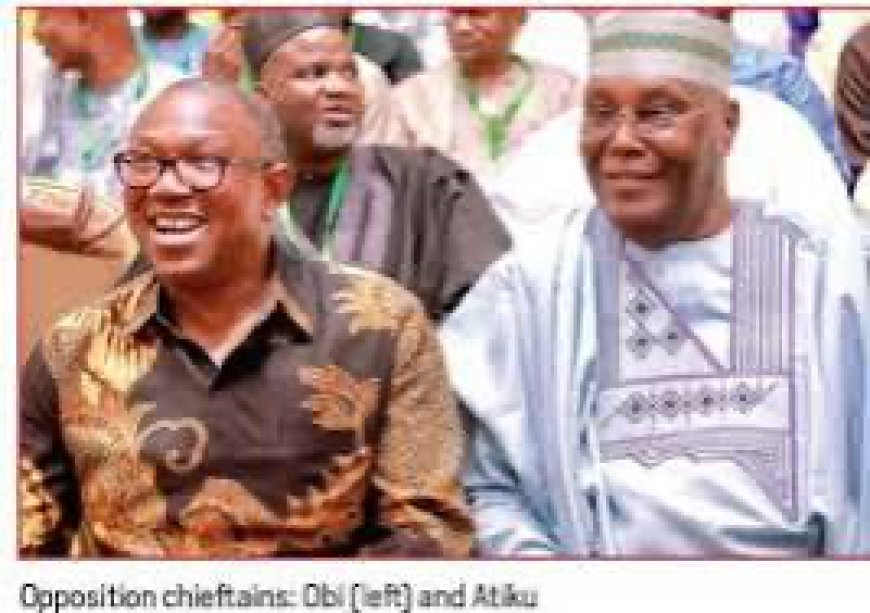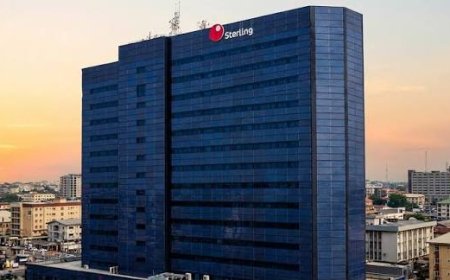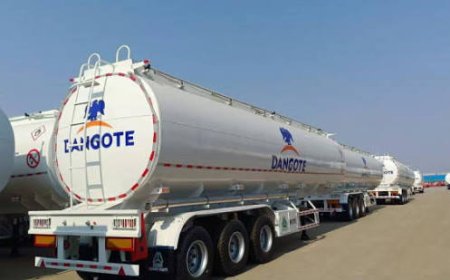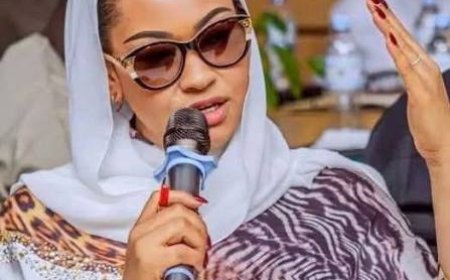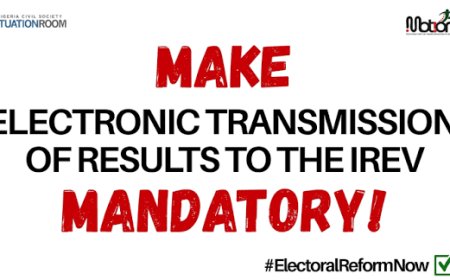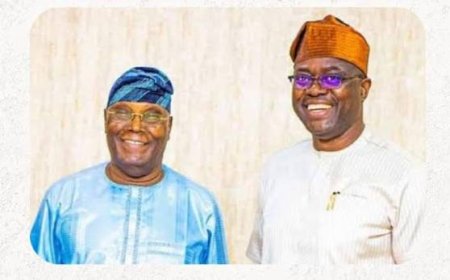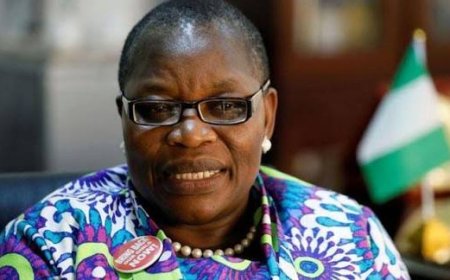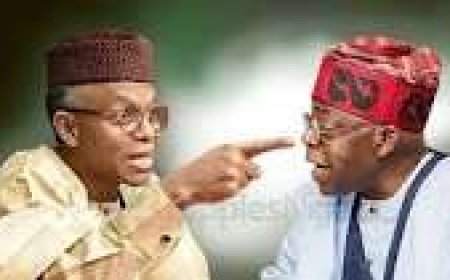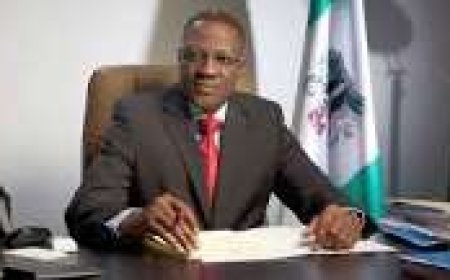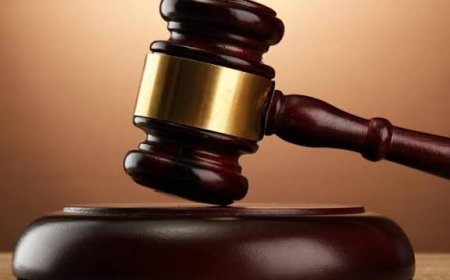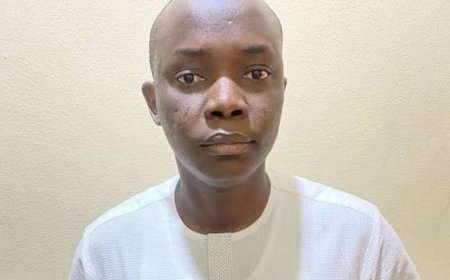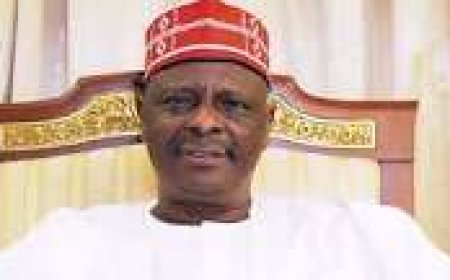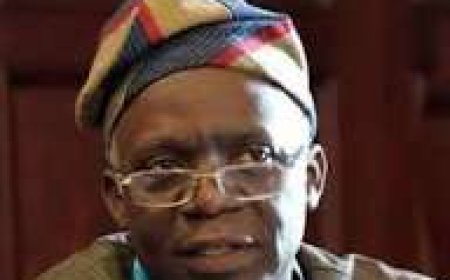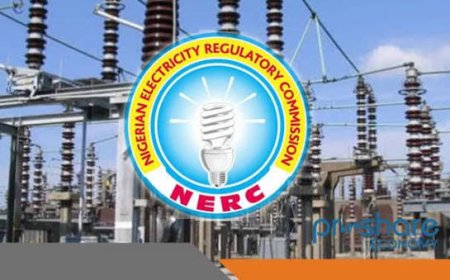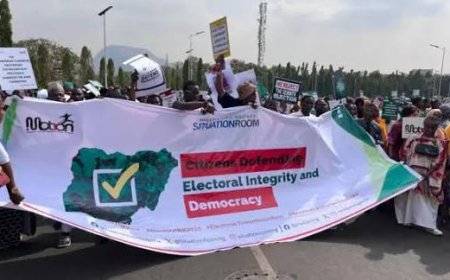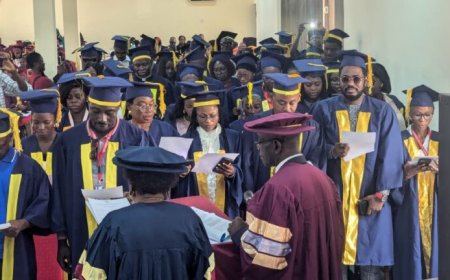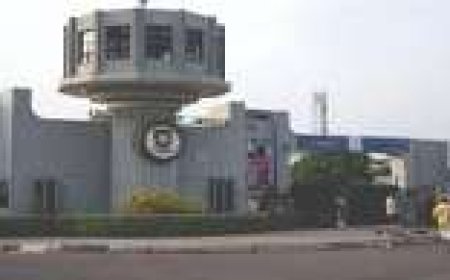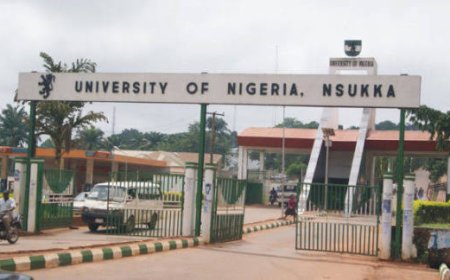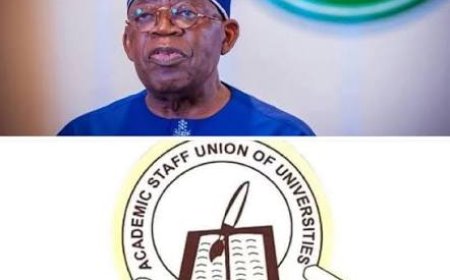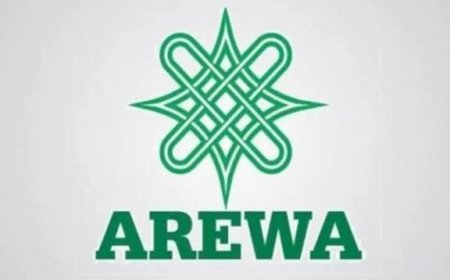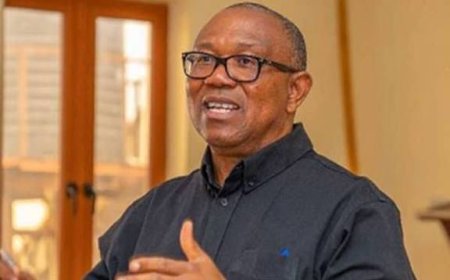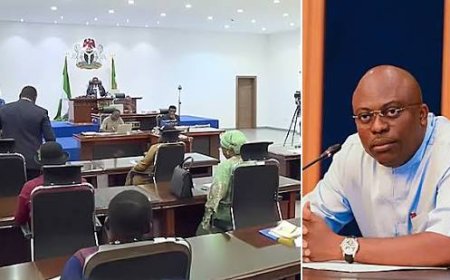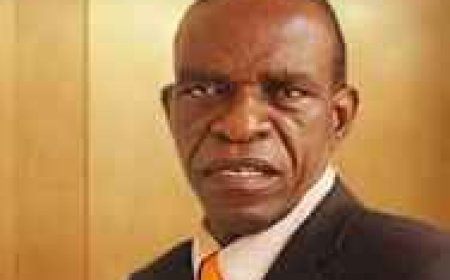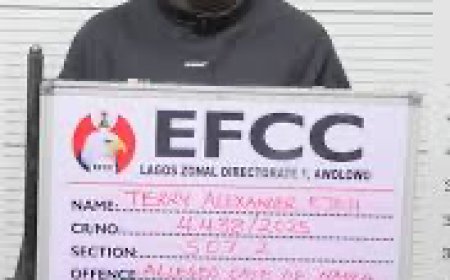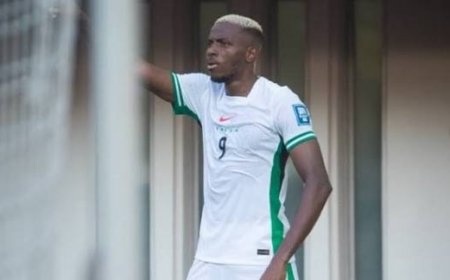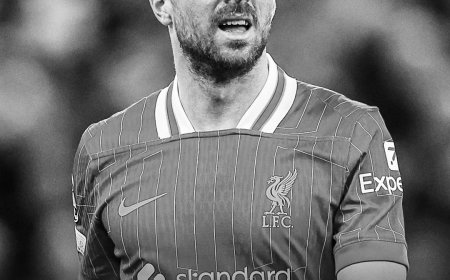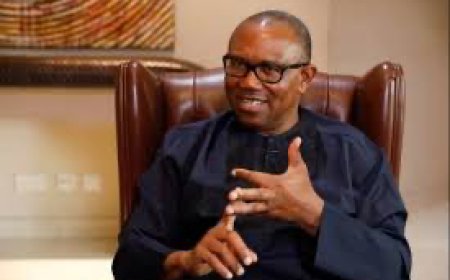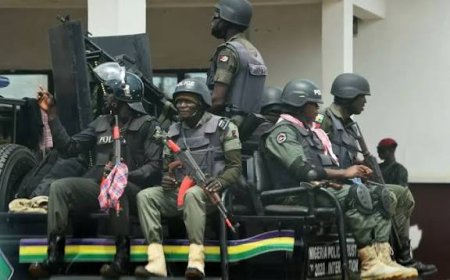By Ike Abonyi
“ _Do nothing out of selfish ambition or vain conceit, but in humility consider others better than yourselves”-_ Philippians 2.3
Despite the deep-rooted desire by many Nigerians for a change of regime in 2027, some political pessimists are still sceptical, fearing that it may fail. Why? Because most of the characters driving the opposition coalition have public perception issues. The public does not feel they are coalescing for Nigerians and Nigeria’s sake but for their selfish interest. The same interest that prompted them to betray their party resulting in the PDP's loss of power in 2015. Most of them are not really angry about Nigeria’s situation or hungry for genuine democratic governance but are either bitter about what is done to them as individuals or just want power for an ego trip. If this very necessary battle of removing Tinubu is to succeed and even enjoy spiritual backing, it must be for the sake of saving our democracy and ending the suffering of the masses in our land.
The obvious indication of this worrisome perspective is reflected in the apparent coming together of the gladiators with each wearing a garb of clear unwillingness to make sacrifices. None of them appears disposed to putting merit and competence ahead of parochial ethnic, religious and regional interests thereby making most of them no different from the ‘Emilekon’ man they want to push out.
In Nigeria today, virtually every heart and mind yearns for strong opposition to defeat the copiously failed regime of Tinubu and his noisy All Progressives Congress, APC. This is despite the increasing strange traffic to the party. Those romancing with the APC are doing it in the belief that a free and fair election doesn’t look feasible. The politicians thronging to APC deviously hold the view very strongly that it’s only the ruling party and Tinubu that have the omnipotent power to forgive sins and afterwards rig the sinners into office as a handsome reward for joining the gang.
The question then is, why is the opposition lethargic in doing that which the populace is hankering for? Many variables are responsible for this, the topmost being selfishness, insincerity, disproportionate ambition and corruption.
As the opposition leaders are gathering and trying to forge an alliance, self-interest, more than any other variable, has dominated the conversation. Hardly is Nigeria and her challenges really on the table; instead, what you see and hear is selfish interest, religious, ethnic, regional and other retrogressive issues. Competence is not on the table even as Nigeria bleeds from damage done to its polity by parochialism, incompetence and incapacity.
For instance, how do you explain the fact that among the persons offering themselves for President in 2027, the one that has shown some prowess by his antecedents and message, Peter Obi is the one they are trying to push to be running mate because Nigeria is averse to utilizing its first eleven team in a contest. They have seen that Obi is what Nigerians desire; he is the most evidently capable and agile person for the challenges on the ground today, but rather than prompt him for the position, they want him to play second fiddle and become a tool for political marketing.
In 2014 when politicians and political parties ganged up against President Goodluck Jonathan and his then-ruling Peoples Democratic Party, PDP, they anchored every one of their activities on two things, insecurity and corruption and went for the man who at that time had impeccable credentials on the two items, Gen Muhammed Buhari. They also played up the zoning issue which was in favour of the North. Nigerians took them seriously and bought their candidate despite having the foreknowledge that Buhari was deficient in economic matters. But they then believed that if security and corruption challenges are fixed it can help to stabilize the economy. What happened thereafter is a story for another day. Suffice it to say that the regime took us from a frying pan (Buhari) into a fire(Tinubu).
But rather than pick some tutorials from that, the ongoing coalition instead of anchoring their coming together on those critical issues that appeal to the people, zoning, insecurity, corruption and economy are playing up voting power even when those voters are dying in the weight of bad governance they wrongly and regrettably enthroned.
Despite the weight of reason justifiably tilting towards the Southern Presidency so as not to give the failed incumbent APC administration any underserving advantage, some persons are still obstinately pushing for the coalition standard bearer to come from the North.
This seeming lack of belief or trust in using a Southerner whom the tide favours to chase out an underperforming Southerner is actually the reason why the coalition may be stillborn. Especially when the South has a veritable candidate in Peter Obi from the Southeast zone who has not tested the number one or two position since 1999. Imagine the euphoria that will greet the political landscape if the coalition from inception takes a clear position on their flag bearer coming from the South.
Whether you like it or not, Peter Obi's appeal and influence are real and can be attributed to several factors. He has an unprecedented electoral performance, never seen in Nigeria’s electioneering. He secured or was allocated over 6 million votes in the 2023 presidential election where the winner got just eight million, showcasing his broad appeal and grassroots support despite not having a single Nigeria public officer at federal, state and local government levels. He won in the two most cosmopolitan cities in the country, Lagos and the nation’s capital, Abuja. It’s indisputable that in 2023, Peter Obi had the voting population on his side, but the selfish elites used corrupt officials of the Electoral body, Security agencies and Judiciary operatives to block the People’s choice.
Why has Obi been this phenomenal? Perhaps his leadership style, a humble, empathetic, and results-driven approach resonates with many Nigerians, particularly the youth. Also, his policy focuses emphasis on economic reform, education, healthcare, and infrastructure development to align with the needs and aspirations of many Nigerians. Added to that is his authenticity and his reputation for integrity and transparency, which has earned him trust and admiration from various segments of society across ethnic, religious and regional lines. It’s this deep-seated admiration for Obi that has inspired an organic political movement, the first of its kind in our political journey, ‘The Obidient Movement’, which emerged during his presidential campaign, and which demonstrates his ability to mobilize and inspire people, particularly young Nigerians.
These factors combined have contributed to Peter Obi's popularity and influence, making him a significant figure in Nigerian politics enough to compel any serious political coalitions not to look for any other motivator to drive them.
If the opposition coalition anchors its alliance on Obi, Nigerian's home and in the diaspora, as well as international community monitoring events In Nigeria, will then know that the country is desirous of a genuine change.
If the motive for the gang-up is just to remove a President without any inspiring new template, the people will see nothing intriguing to prompt them into action.
The concerning effect of selfish ambition is that it can lead to a focus on short-term gains, compromising long-term goals and the greater good. The coalition would, therefore, be born dead if, in its permutations, seizing power in 2027 is chiefly their concern rather than what to do with the power thereafter for the good of the people.
If any political arrangement to remove the underwhelming government of President Tinubu is to be effective therefore its drivers must listen to this wise counsel from Martin Luther King, “Everyman must decide whether he will walk in the light of creative altruism or in the darkness of destructive selfishness “
The obvious potential dangers of selfish political ambition, which is the bane of our politics and the real cog in the ongoing political alliance talk, are in the erosion of trust, the prioritization of personal gain over collective well-being, and the potential for oppression and exploitation.
So, my real apprehension is that this opposition coalition may face challenges that could hinder its success, making it seem stillborn.
What is giving room to this perception is the absence of a clear lack of direction; the coalition is still in the process of selecting a political party to adopt or registering a new one, with discussions ongoing. This lack of clarity might undermine its momentum. There is also glaring Internal conflict arising with what to do with Peter Obi, easily the most veritable political figure in the country today, and the pretentious failure of the group to factor in the issue of zoning in its arrangement. This is despite history standing as a witness that zoning issue is the main factor that led to the downfall of the main opposition PDP in 2015 and 2023. But lessons are yet not being learnt as some want to go through the same road but expect to end up with a miraculous different destination. Also surprisingly being ignored by the coalition is the issue of age, agility of players and trust, which have continued to play up in a manner that requires a pragmatic approach.
But notwithstanding all these apprehensions and challenges, some optimists still strongly believe that the coalition can still become a force if it avoids these highlighted pitfalls picks some lessons from the PDP's disastrous mistakes and finds a way to work together peacefully and courageously by picking a trusted, strong, and popular leader, potentially one who has shown momentum in the political space as the standard bearer.
When a coalition that appeals to Nigerians emerges, it will be obvious to President Tinubu that even with his almighty incumbent powers, his disgusting exclusive reign will be at the exit door for good in 2027. May God help us.
